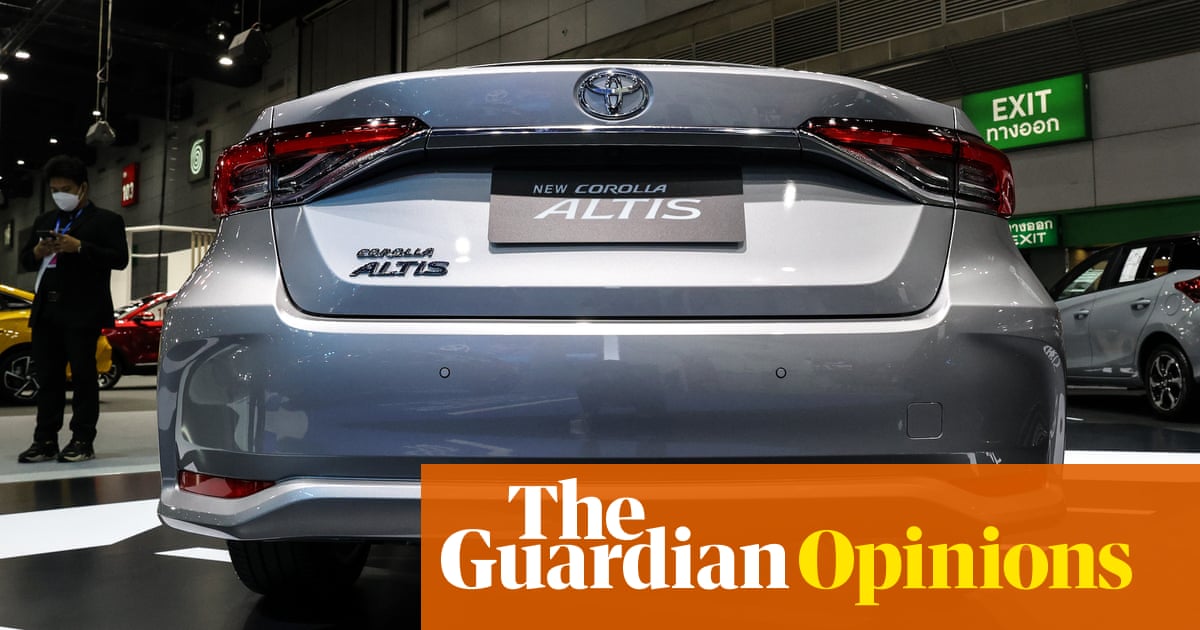
Driving an electric car on a single charge from London to Milan sounds like an impossible dream. Yet Japanese carmaker Toyota claims that by 2027 motorists will be able to buy such a vehicle. Running the air conditioner at full blast might reduce such an impressive range, but Toyota says drivers will be able to recharge in 10 minutes before they are back on the road. If this all sounds too good to be true, that’s because it probably is.
What Toyota says it has found nothing less than the holy grail of battery technology – the so-called solid state solution – which has long eluded the industry. Instead of a liquid core, the new battery has a solid one between electrodes. This means it is smaller and can store more energy – delivering a bigger range for the same weight. The heavy flammable liquid cores can also overheat and explode. Since 2017, UK emergency services have attended hundreds of electric vehicle fires.
Rapid technological advances have historically been the norm in capitalism. Rich-world governments have rightly come to see electric cars as an essential way to reduce air pollution and crack down on climate-warming emissions, while satisfying an individual’s desire for personal transportation. Compared with combustion-engine cars, they have significant environmental benefits. But the climate crisis should be a chance to question whether the motorcar itself has become too embedded in our everyday lives. The future of “mobility” must involve much more than private cars.
It would be churlish not to recognise that the Japanese carmaker’s announcement is a form of progress. There should be a sensible place for cars as part of an integrated transport plan in the years to come. As Toyota has been a sceptical voice about electric vehicles, a change of heart, if sincere, is to be welcomed. The company had previously staked its future on its range of hybrid-engine cars, powered by both an internal combustion engine and an electric motor, arguing that shortages of key battery materials and insufficient charging infrastructure would prevent a universal switch to electric vehicles in the short term. Whether Toyota will be able to leapfrog its rivals remains to be seen, however, as mass production requires a far more stringent level of quality control and reliability.
But even a low-carbon-emitting car remains a low-capacity mode of transportation. Doubling down on its near-monopoly over the surface transportation system would lead to a future of ever-worsening congestion and road accidents, which currently cost 30 lives in the UK every week. Elon Musk, the boss of Tesla, allegedly tried to kill the California high-speed rail project in 2013. A decade later the electric bullet train has announced it will be solar-powered. Industry lobbying in the 1930s helped pave the way for a US lifestyle dependent on cars and oil. That must not be replicated for electric vehicles today.
The global north cannot just bet on a Toyota- or Tesla-style decarbonisation. The volume of critical minerals needed for decarbonising the rich world on its current growth path would leave nothing for poorer nations. Sunsetting undesirable technologies and infrastructures (such as carbon-intensive motoring) must be accompanied by a recognition that we all have to live within the world’s material constraints. In the richer world that must mean prioritising mass transportation and rethinking urban planning, not vesting so much hope in our current pattern of living continuing unchanged.
"electric" - Google News
July 06, 2023 at 01:54AM
https://ift.tt/xzMa96y
The Guardian view on Toyota’s electric car battery: a boost only if we embrace public transport - The Guardian
"electric" - Google News
https://ift.tt/zYW40Ko
https://ift.tt/ExmuqvB
Bagikan Berita Ini














0 Response to "The Guardian view on Toyotas electric car battery: a boost only if we embrace public transport - The Guardian"
Post a Comment